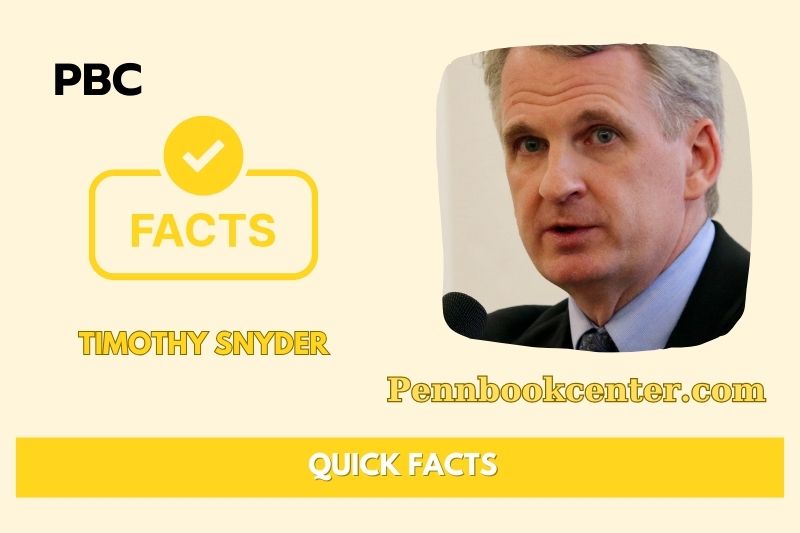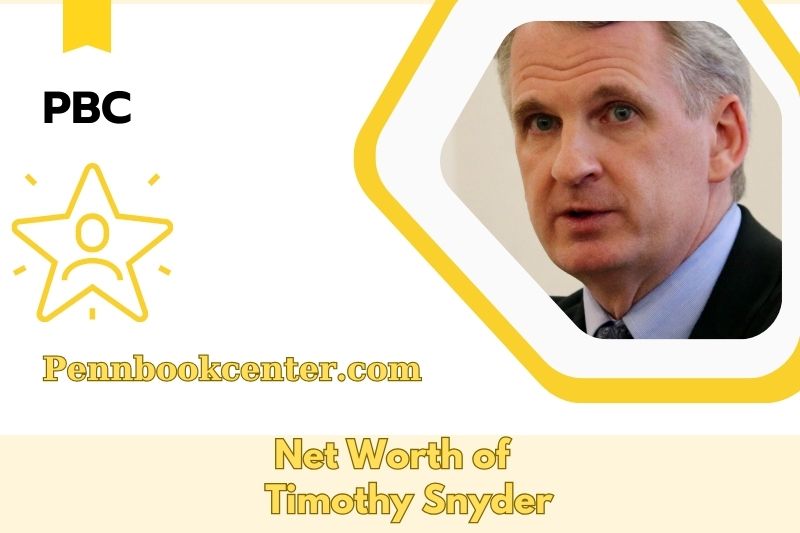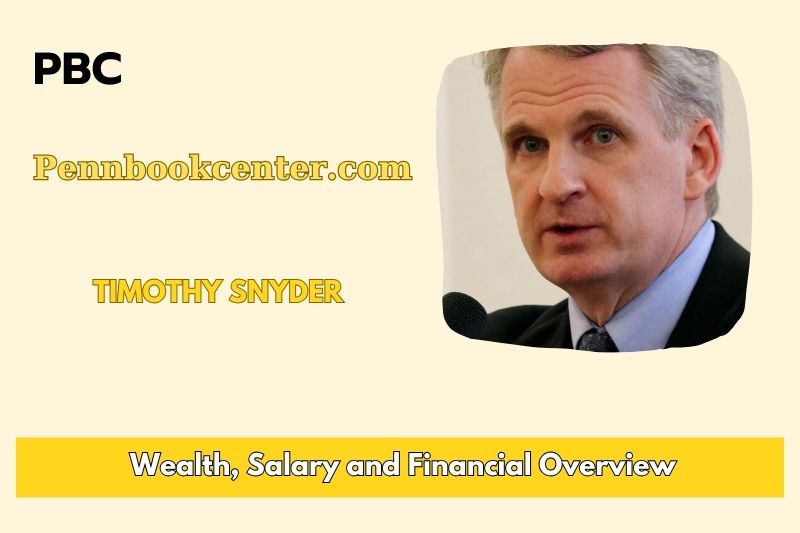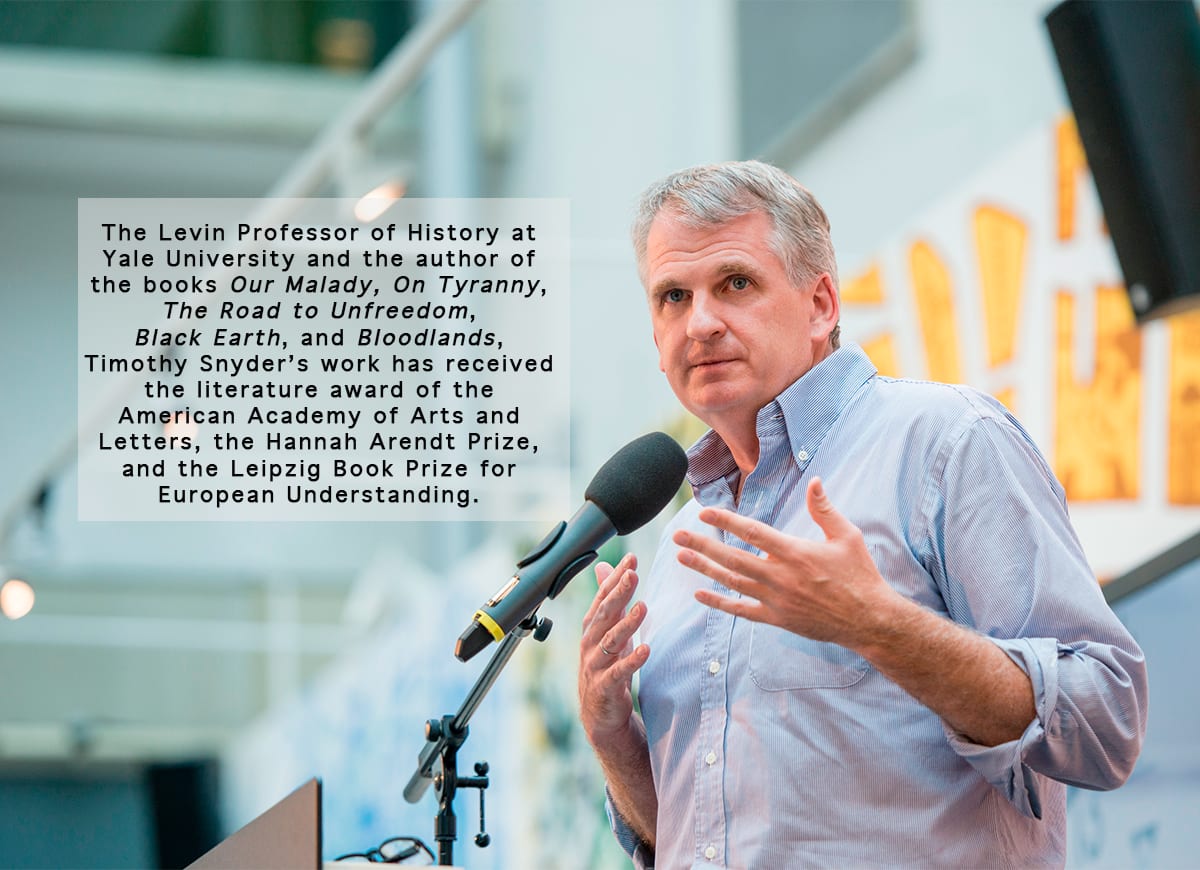Timothy Snyder's Net Worth In 2025: A Closer Look At The Numbers

So, how much money is Timothy Snyder really sitting on in 2025? That's the question everyone's buzzing about.
As a Yale history professor, a New York Times bestselling author, and one of the most respected voices in global politics today, Timothy Snyder's financial status has sparked a lot of curiosity. In this article, Pennbook takes a deep dive into Timothy Snyder’s net worth, breaking down his earnings, Yale salary, book royalties, and other professional income streams that contribute to his wealth.

Read also:Ximenna Saenz A Rising Star In The Spotlight
Table of Contents
Timothy Snyder Quick Facts
| FACT | DETAIL |
|---|---|
| Real Name | Timothy David Snyder |
| Popular Name | Timothy Snyder |
| Birth Date | August 18, 1969 |
| Age | 55 (as of 03/28/2025) |
| Birthplace | Dayton, Ohio, United States |
| Nationality | American |
| Ethnicity | N/A |
| Education | Brown University (B.A), University of Oxford (D.Phil.) |
| Marital Status | N/A |
| Spouse | Marci Shore |
| Children | Two |
| Dating | N/A |
| Siblings | N/A |
| Parents | Estel Eugene Snyder, Christine Hadley Snyder |
| Height (meters) | N/A |
| Net Worth | Not publicly disclosed |
| Source of Wealth | Academic salary, book royalties, public speaking, fellowships, advisory roles |
What is Timothy Snyder's Net Worth in 2025?

By 2025, Timothy Snyder’s net worth remains under wraps, a closely guarded secret. But here's the thing: Snyder isn’t just a professor at Yale; he’s also a bestselling author and a global lecturer whose work has shaped the way we think about history, politics, and democracy. His income comes from a variety of high-impact sources.
Take a look at his books, for instance. Titles like Bloodlands and On Tyranny have been translated into dozens of languages, selling copies all over the world. And let’s not forget his roles in prestigious organizations like the Council on Foreign Relations and the United States Holocaust Memorial Museum, which likely add to his financial portfolio.
While we don’t have exact numbers, comparing Snyder to other public intellectuals suggests he’s built a solid, respected, and diversified financial foundation. If you’re curious about how other influential figures make their money, check out our page on the earnings of famous personalities.
Some key people in Timothy Snyder's circle:
Read also:Ava Tayloe Rising Star In The Spotlight
- Tony Judt
- Timothy Garton Ash
- Jerzy Jedlicki
- Estel Eugene Snyder
- Richard C. Levin
- Vladimir Putin
- John Connelly
- Olena Zelenska
- Elon Musk
- Donald Trump
Timothy Snyder's Wealth, Salary, and Financial Overview

How Much Does He Earn from His Role at Yale University?
Timothy Snyder currently holds the prestigious title of Richard C. Levin Professor of History at Yale University, a position that comes with significant prestige—and, likely, a substantial paycheck. Professors at this level in Ivy League schools often earn salaries that reflect their expertise, influence, and contributions to academia. While Snyder’s exact salary isn’t publicly available, it’s safe to assume his compensation reflects his high standing in the academic world.
In 2025, Snyder is on leave to teach at the Munk School at the University of Toronto, further expanding his international reach. This kind of arrangement often includes additional compensation, making his academic income even more robust. Over the years, Snyder has taught at prestigious institutions like Stanford University, Leiden University, and the London School of Economics, each of which has added to his financial and professional capital.
What Are His Income Sources Outside of Teaching?
Snyder’s income goes far beyond his teaching duties. As a bestselling author, his royalties alone could rival or even surpass his university salary. Books like Bloodlands have been translated into over 30 languages, and On Tyranny remains a bestseller years after its release. These works continue to generate steady income through reprints, international editions, and digital formats.
Beyond his books, Snyder writes for major publications like The New York Times, Foreign Affairs, and The Guardian, sharing


